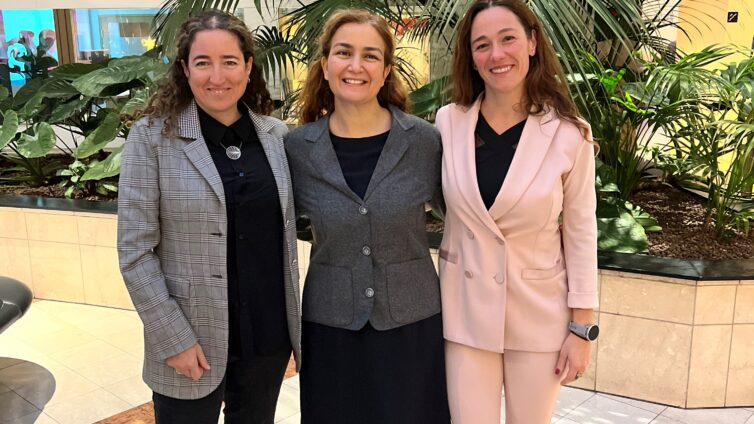
They get SEK 60 million for 6G satellite communication center!
The project “Sustainable Mobile Autonomous and Resilient 6G SatCom” receives SSF’s grant of SEK 60 million to run a multidisciplinary research center. The center is a collaboration between universities, research institutes and a large number of specialized companies, together with several regions and authorities. The main project leader is Cicek Cavdar, at KTH.
The research at the center will be run by a total of 21 partners distributed between:
University: The Royal Institute of Technology (KTH), Luleå University of Technology (LTU),
Research institute: RISE (Research Institutes of Sweden), Swedish Institute of Space Physics (IRF)
Companies: Ericsson, Saab, Ovzon, Beyond Gravity, Forsway, Satcube, Swedish Space Corporation (SSC), NorthernWaves, Primekey, Airforestry,
Authorities, organizations and regions: Post and Telecom Agency (PTS), European Incoherent SCATter Scientific Association (EISCAT), Swedish Transport Administration, Swedish Forest Industries, Region Norrbotten, Region Västerbotten, Region Stockholm.
The center is also supported by several international universities and companies, including Eutelsat-OneWeb, Airbus, Viasat and Thales Alenia Space. Together, this includes partners from the entire value chain: regulators, system manufacturers, operators and users. The centre’s access to real data and the possibilities for broad standardization and multidisciplinary research are thus excellent.
The goal with the center SMART 6GSAT (a shortening of the project name “Sustainable Mobile Autonomous and Resilient 6G SatCom”) is to integrate traditional land-based mobile communication and space-based satellite communication in 6G, which is expected to be in use in the 2030s.
The vision is for mobile communication services to be seamlessly available to anyone with a 6G device, anywhere, anytime. The focus will be on sustainability and energy efficiency, reliability and resilience, as well as system interoperability and always-on artificial intelligence.
To achieve the vision, research will focus on improving the hardware for both 6G devices and space-based satellites, developing signal processing methods that handle large signal losses and are robust to space-based interference, developing network technologies that integrate land and space systems, and developing new intelligent applications that combine communication, localization and remote sensing.
Project start is January 1, 2025.
For further information, please contact:
Research Secretary Jonas Bjarne, jonas.bjarne@strategiska.se, 08-505 81 673
Program Manager Joakim Amorim, joakim.amorim@strategiska.se, 08-505 816 65